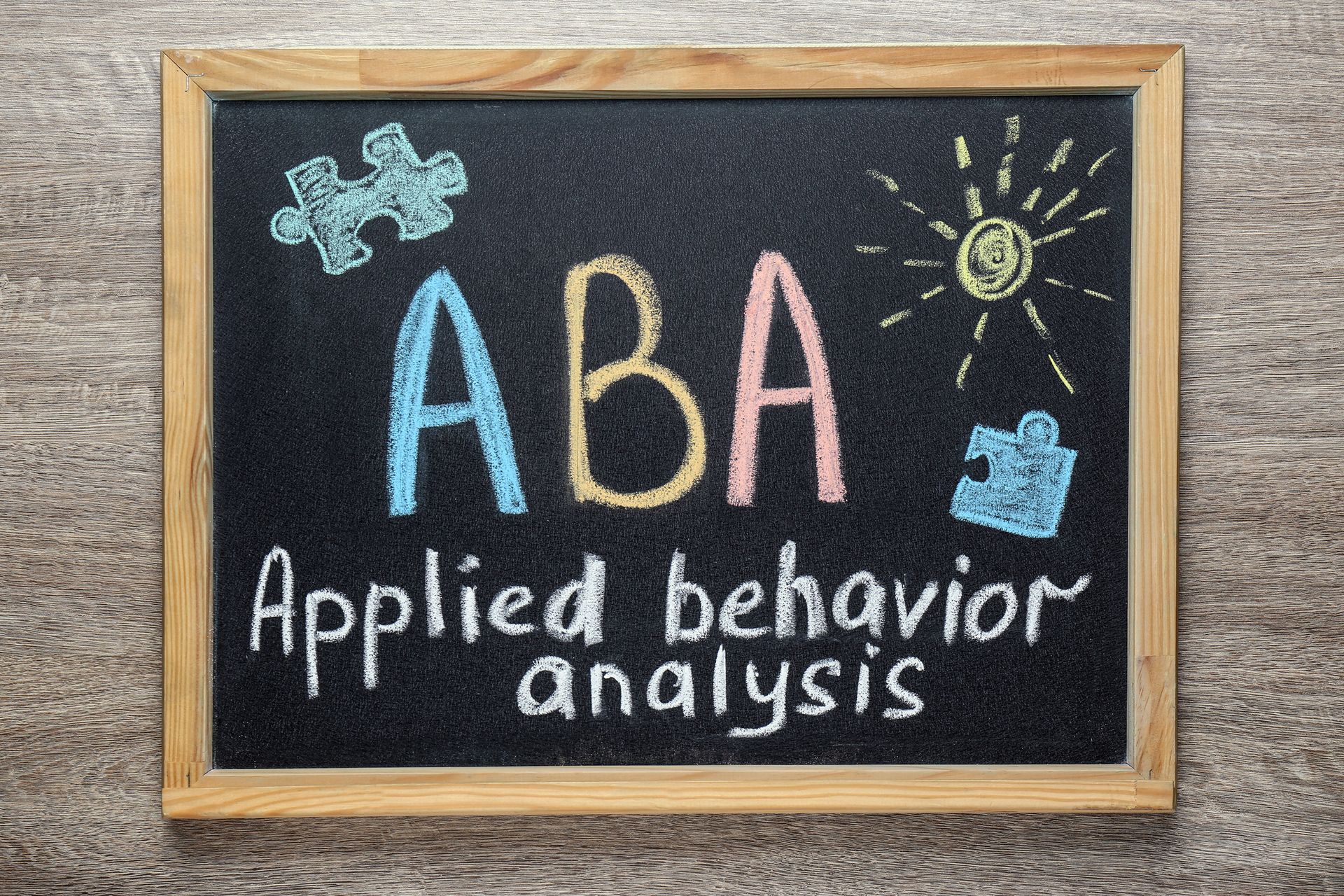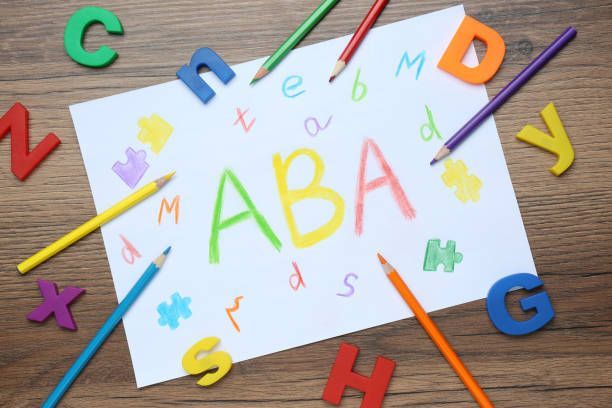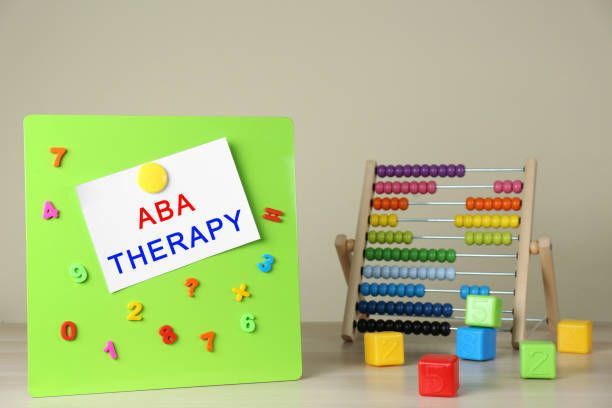Blog Layout
10 Signs Your Child Could Benefit from ABA Therapy
December 12, 2024
If your child was diagnosed with autism (ASD), then it’s very important to consider ABA therapy. What makes ABA therapy very good is the fact that it can help decrease any problematic behaviors while also teaching kids skills. That’s performed via different techniques, ranging from modeling, prompting, shaping, reinforcement, and many others. But how do you know your child could benefit from ABA therapy? Here are a few signs you should be looking for.
Your child has sensory processing differences
For some kids with autism, it’s very difficult to process sensory differences, and stimuli, textures, and even noises can be felt as something very intense. With ABA therapy, kids can enter practice sessions that will teach them how they can tolerate those stimuli without being heavily affected.
Staying away from their peers
Is your child avoiding any social interaction? ABA therapy could be very helpful because it teaches kids how to socialize through video modeling, role play, and various games. All of these are structured to be fun and engaging as well.
Moving locations and tasks is very hard
That’s a common issue most kids with autism have, and ABA therapy comes with transitional strategies and visual schedules. Simple routines such as having a song play while moving to a new task/location could help, and this is just one of those techniques.
Challenges in communication
Maybe the primary role of ABA therapy is to help kids with autism improve their communication skills. Most autistic children deal with struggles in regard to communicating their needs and wants. ABA therapy uses things like picture exchanges, sign language, reinforcement techniques, and many other ideas to improve how autistic children communicate!
The child has repetitive behaviors
A lot of the time, repetitive behaviors like rocking or hand flapping are very common in the case of children with autism. That’s why ABA therapy can help because it uses visual supports or even various environmental changes to help lower any signs of distress while helping the child adapt with ease and forget about those repetitive behaviors.
Unsafe behavior
Sometimes, autistic children will lack safety awareness around hazards, be it water, cards, and so on. The role of ABA therapy is to teach those safety skills and share instructions on how to stay safe. That way, any wandering around will be a thing of the past.
Inability to maintain focus
We should also note that some children with autism can’t stay focused on the task at hand. The role of ABA therapy in this situation is to help build stamina using various work systems, but also strategies like sustained focus or visual supports.
Outbursts of aggression
Autistic children are also known to sometimes have struggles communicating their ideas, or they might be dealing with a sensory overload. They become frustrated, and that’s where something like ABA therapy can be very useful. It helps identify triggers while also offering various coping methods.
Your child is injuring himself
While these symptoms are rare, things like skin picking or hand biting can appear in the case of anyone who has autism. That’s when ABA therapy can become extremely helpful. A therapist can help identify this situation and assist the child with complementary solutions.
Problems at school
It’s also common for autistic children to have problems getting accustomed to the school environment. In their case, it becomes very difficult to adjust to new situations, and ABA therapy can help them slowly accommodate to the new environment.
Conclusion
There’s no denying that ABA therapy can be very effective in the case of any child who has autism. It’s very important to ensure that your child gets all the attention and help he needs, and that’s where ABA therapy shines. Professional therapists from Buzz ABA
are here to assist with detailed, customized therapy programs that will help brighten your child’s future while making it easier for them to cope with any issues related to autism!

April 7, 2025
ABA Therapy, or Applied Behavior Analysis, plays a crucial role in helping children with autism thrive in school environments. Families and educators alike are recognizing the positive impact ABA therapy has on students with autism. This form of therapy focuses on improving specific behaviors, enhancing social skills, and promoting academic success, all tailored to the child's unique needs. How ABA Therapy Supports School Environments Improved Communication Skills ABA therapy in Concord, New Hampshire , helps children with autism develop essential communication skills. Through structured teaching techniques, children learn to express their needs, participate in classroom activities, and engage with peers. Enhanced Focus and Attention One of the key benefits of autism therapy in New Hampshire is helping children stay focused during school tasks. ABA therapy provides strategies to improve attention spans and reduce distractions, allowing students to better engage with their lessons and stay on task, contributing to their overall academic progress. Social Skills Development Children receiving in-school ABA therapy gain valuable social skills, such as turn-taking, understanding social cues, and forming friendships. These skills are vital for both academic success and building relationships with peers, helping children with autism feel more integrated and confident in the school setting. Behavioral Improvements ABA therapy also addresses challenging behaviors that may interfere with learning. By using positive reinforcement, therapists teach children appropriate behaviors, reducing disruptive actions and promoting a more productive and peaceful classroom experience. Early intervention services in New Hampshire are a critical component of this support, as they can address behavioral challenges and skills gaps before they affect school performance. Early intervention often leads to better outcomes, making it a key aspect of autism therapy for young learners. For more information on how ABA Therapy can benefit your child in school, don’t hesitate to reach out. Contact Buzz ABA today to discuss how we can support your child’s journey. Disclaimer: Blogs, content, and other media uploaded online are for informational purposes only. Contents on this website should not be considered medical advice. Readers are strongly encouraged to visit their physician for health-related issues.

March 7, 2025
Children with autism may experience behaviors that make daily activities more difficult. These behaviors can include difficulty with communication, repetitive actions, or struggles with transitions. With the right support, these challenges can be addressed effectively. ABA therapy in Concord, New Hampshire , uses evidence-based techniques to help children build essential skills and reduce behaviors that interfere with learning and daily routines. Support at an early age can significantly improve a child's development. Early intervention services in New Hampshire focus on teaching skills that promote independence, improve communication, and strengthen social interactions. Research shows that children who receive therapy at a young age often make greater progress in learning and adapting to new situations. Strategies Used in Autism Therapy ABA therapy provides structured approaches to reducing challenging behaviors . Some of the most effective strategies include: Positive Reinforcement – Encouraging desired behaviors through rewards helps children learn new skills in a supportive way. Functional Communication Training (FCT) – Teaching alternative ways to communicate, such as using pictures, gestures, or speech devices, reduces frustration and improves interactions. Visual Supports – Schedules, charts, and picture cues help children understand expectations and navigate transitions more easily. Behavior Replacement Strategies – Identifying triggers and teaching appropriate responses can help prevent outbursts and meltdowns. Structured Learning Environments – A consistent and predictable routine supports learning and minimizes anxiety. Choosing the right provider is essential. ABA providers develop individualized treatment plans based on each child's needs. Through autism therapy in New Hampshire , children gain skills that help them navigate daily life with more confidence. If your child could benefit from structured support, explore ABA providers today. Early intervention can make a lasting impact. Contact Buzz ABA to learn more and discover how personalized therapy can support your child's growth and development. Disclaimer: Blogs, content, and other media uploaded online are for informational purposes only. Contents on this website should not be considered medical advice. Readers are strongly encouraged to visit their physician for health-related issues.

February 3, 2025
In-home ABA therapy provides a practical and effective way to support individuals with autism in a familiar environment. This approach promotes comfort, engagement, and tailored support for unique needs. Here’s why it stands out: Comfort and Familiarity Conducting therapy sessions at home creates a safe and predictable environment. This setting allows individuals to feel at ease, making it easier to learn and practice new skills. Families in search of ABA therapy in Concord, New Hampshire , often find in-home therapy especially beneficial for children who thrive in a stable and familiar space Individualized Goals and Personalized Care In-home ABA therapy is centered around each individual’s specific needs and strengths. Therapists develop plans that align with personal and family goals. This tailored approach ensures that the therapy directly addresses key areas, fostering progress in communication, social skills, and daily living activities. Convenient for Families For many families, managing schedules can be challenging. In-home sessions eliminate the need for travel, saving time and reducing stress. Parents and caregivers also gain insight into effective strategies they can use to support their loved ones outside of therapy sessions. Promotes Family Involvement A significant benefit of in-home therapy is the opportunity for family members to participate. Therapists can guide parents in techniques to reinforce progress, creating a collaborative approach. Families seeking autism therapy in New Hampshire often find this aspect invaluable for creating consistent support. Ideal for Early Intervention For children, early intervention services in New Hampshire are crucial in developing foundational skills. In-home therapy ensures that learning happens in the same environment where these skills are applied, leading to meaningful and lasting results. Ready to Explore In-Home ABA Therapy? Buzz ABA provides high-quality therapy services tailored to meet the needs of individuals and families. Contact us today to learn more about how in-home ABA therapy can make a difference. Disclaimer: Blogs, content, and other media uploaded online are for informational purposes only. Contents on this website should not be considered medical advice. Readers are strongly encouraged to visit their physician for health-related issues.

January 21, 2025
Early ABA therapy plays a vital role in supporting children’s cognitive development , providing them with tools to navigate their world with confidence. Families seeking ABA therapy in Concord, New Hampshire , can access specialized programs that focus on building communication, problem-solving, and social interaction skills. These services are designed to promote growth during critical developmental years. Early intervention is key to addressing developmental delays when the brain is most adaptable. Programs offering autism therapy in New Hampshire use structured teaching and positive reinforcement to help children improve memory, attention, and reasoning. These therapies are particularly effective when provided by experienced ABA providers who understand the unique needs of each child. Key Benefits of ABA Therapy for Cognitive Development Here are four ways early intervention services support cognitive growth Improved Communication ABA therapy strengthens verbal and non-verbal communication, helping children express their thoughts and needs more effectively. This improvement significantly impacts their ability to engage with family, peers, and educators. Enhanced Problem-Solving Skills Through repetitive learning and structured routines, children build decision-making and logical thinking skills, which are essential for daily life. Better Social Interactions By teaching social behaviors and interpreting social cues, ABA therapy helps children form meaningful relationships. Families find these services invaluable for fostering peer connections. Increased Independence ABA therapy equips children with adaptive skills, enabling them to perform tasks independently. This boost in confidence prepares them for success at home, school, and beyond. Accessing ABA therapy early ensures children receive the right support during their most critical developmental stages. ABA providers offer programs that focus on personalized strategies to empower both children and their families. Contact Buzz ABA today to learn how our early intervention services in New Hampshire can help your child thrive. Our dedicated team is here to guide you every step of the way toward achieving meaningful progress. Disclaimer: Blogs, content, and other media uploaded online are for informational purposes only. Contents on this website should not be considered medical advice. Readers are strongly encouraged to visit their physician for health-related issues.

December 12, 2024
ABA therapy can be very effective for any child that has autism; however, picking the best therapist or therapy center is a challenge. Not only are there multiple options, but you also have to consider all the different specializations and extra features. If you want to hire a professional in ABA therapy, here are the main things to focus on. Experience and background It's always very important to hire someone that has lots of experience in this niche. Hiring someone with a master's degree or a PhD in this field. You should also inquire about their professional history and if they are specialized in a certain age group, for example. The same thing is valid when you work with a therapy center, learn more about who will be working with your child and their background. What programs are used for ABA therapy? Every therapist and therapy center will have their own strategies and programs they use to assist kids. It's important to understand those programs, what they include, how they work with your child, and so on. Ideally, they should have a customized plan for every child, and they should use evidence-based practices. Reviews Of course, reviews are important because they will let you know how good the therapist is, if there are any concerns, etc. Once you learn more about the therapist, it will be easier to pinpoint the right option. After all, reputation is key, so it always helps to go with someone who has very good reviews and who also replies to any negative reviews professionally and with evidence, if possible. Will they keep you updated? Another thing to note about ABA therapy programs or therapists is the approach they have when it comes to sharing updates. That's up to you, but it's always a good idea to receive updates from the therapist. A progress tracking system is obviously ideal, but not all therapists will offer that. Will the family be involved in the ABA therapy programs? Some therapists involve the family in the ABA program, while others don't. It depends on the type of programs that they find suitable for the child. It can be a possibility to encounter those programs where family involvement is crucial, and that's certainly a thing to keep in mind. Other things to consider: • Is any data collected when it comes to your child's skill acquisition and behavior? Will you have access to that data or not? • Ask for references that might help narrow down the right therapist. Finding the best ABA therapy specialist will always be a challenge, but these tips and ideas should help streamline the process. It's very important to make sure that you focus on finding the best therapist for your child, so don't rush the decision. Instead, take your time as you narrow down the best option!

December 12, 2024
Both ADHD and autism are known for being neurodevelopmental disorders. That’s why they have a variety of similarities, but there are some key differences between the two as well. Around 10% of people have ADHD, and 50 to 70% of those with autism have ADHD as well. That brings the question, are ADHD and autism connected? And if so, in what way? Common characteristics One thing to note about both ADHD and autism is that they have multiple common characteristics. These include social difficulties and complications when it comes to the learning style, but also atypical movement that comes in the form of stimming behaviors or fidgeting. Another very common characteristic is inattention, which is known to be very common in the case of anyone with autism. But it goes even deeper than that since people with autism and ADHD both have sensory sensitivities as well. We should also note the fact that both conditions are heterogeneous, which means the genes can differ between each person. The nature of those genetic influences can vary as well. Another study shows the overlap between common ADHD and autism variants. We should also add that according to the CDC , 14% of kids that have ADHD are also autistic as well. Are the common characteristics leading to complications? Yes, due to the symptom overlap, providing an accurate diagnosis can prove to be very difficult. That’s because most of the diagnostics will focus on symptoms and as we see, multiple ones overlap. ADHD diagnosis can be performed via the Conners rating scales, Tests of Sustained Attention, or the Behavior Rating Inventory of Executive Functioning. Autism, on the other hand, can be diagnosed via the Autism Diagnostic Observation Schedule, the Spectrum Rating Scales, or the Monteiro Interview Guidelines designed to diagnose autistic persons. Some evaluators will also opt for a cognitive assessment. Important differentiators While there is common ground in the form of language delays, a high sensory response, emotion regulation, or behavioral control, there are also differences. In the case of people with ADHD, things like impulsivity, hyperactivity, and inattention tend to be the most important factors. In the case of autism, the more prevalent symptoms include things like repetitive behaviors, restricted communication, and social connectivity impairment. What’s the main reason behind this co-occurrence? A shared genetic etiology is the primary reason, which could be the reason behind the up to 72% genetic overlap. That’s one of the reasons why the term AuDHD started being used recently. It combines ADHD and autism as a way to highlight the intersection between the two. And while it’s not fully recognized in the medical community, it is used specifically within the neurodivergent community. It’s very important to visit a specialist or a therapist via Buzz ABA in order to help provide support for anyone with autism or ADHD. Therapy is the best option because it helps create a nurturing, supportive environment, as it will help patients unlock their full potential. That’s especially true in the case of kids since therapy can help them create a bright, amazing future!

December 12, 2024
How do you know if your child is autistic or not? What could feel like a challenge and struggle might be very simple to identify if you know what you should be looking for. That’s especially true when it comes to learning more about the most common autistic behaviors. Here’s a shortlist to consider! Repetitive behaviors For a lot of autistic children, repetitive behaviors tend to be very common. Also known as stimming, this type of behavior is not dangerous, in fact it’s harmless. Granted, it will look very odd in the eyes of other people, but it’s certainly harmless for the autistic child. When it comes to the most common stimming behaviors, these include: • Staring either at spinning objects or lights • Repeating sounds, phrases, or specific words • Flicking or flapping their hands/fingers • Rocking movements, head banging, jumping, and similar behaviors. Meltdowns Meltdowns are known for being more problematic, and they appear when the child fully loses control over the situation. Meltdowns are dangerous because the child could hurt himself or even other people. That’s why you need to identify any situations that lead to a meltdown. And, if you can, take action as quickly as possible. When it comes to what actions you should consider, these include allowing your child to wear headphones, turning down bright lights, or even offering them some distractive items like toys. If there are any changes in their routine, plan ahead and slowly ease them into the change. Movement and language delays These delays are common in the case of autistic children. Some of them will experience delayed language skills while being more developed in other areas. Others will have delays when it comes to movement, learning, or cognitive skills. A lack of social/communication skills In many cases, autistic children will find it difficult to develop any communication or social skills. They either avoid eye contact, they don’t play with others, nor do they sign or dance. Other examples would be things like using few to no gestures until they are 1 year old, not joining other kids or talking with them, etc. These behaviors are very common in autistic children, and they can be a sign that your child needs ABA therapy. If you’re looking for a certified ABA therapist, Buzz ABA is here to assist. We are committed to offering our clients direct access to personalized programs that will help autistic children reach their true potential. Don’t hesitate and get in touch today for more information!

December 12, 2024
If you have an autistic child and want to find some great resources in New Hampshire, we are here to help. We made a short list with some of the best resources you can access at any time, should you be interested in learning more about autism, what programs are available, and how you can assist your child. Buzz ABA https://www.buzz-aba.com/ Buzz ABA offers a wealth of information about autism, but also comprehensive ABA therapy solutions. That will make it easier to educate yourself about autism and how it affects your child. And on top of that, you have access to professional solutions that are tailor made for your child as well. ACT (Autism Care and Treatment) Today! https://www.act-today.org/our-funds/ It’s a national organization, but it has an office in New Hampshire as well. Their focus is to help autistic children with ongoing and early treatments. On top of that, they help families that have an autistic child, and they are known to offer grants ranging from $100 to $5000. Asperger/Autism Network (AANE) https://aane.org/ They work with families, professionals, and individuals who have autism or Asperger’s syndrome. The website is a treasure trove of information when it comes to everything related to autism. You can learn more about how difficult it is to live with autism, what government benefits can be accessed, but also basic autism information. ASPIRE Learning and Living https://allinc.org/resource_category/parent-resource/ What’s great about their website is that it has a section dedicated to parent resources. If you find it hard to learn more about autism, it’s a very good idea to check out their website. It’s very educational, and you can find a lot of insightful information. Connor’s Law https://www.insurance.nh.gov/consumers/health-insurance/applied-behavioral-analysis-therapy It’s a bill that mandates insurance companies to provide coverage for various autism-related therapies. Here, you can learn more about the applied behavioral analysis therapy, what it does, and how you can access this type of services. Operation Autism https://www.operationautismonline.org/ Operation Autism offers a lot of information about autism and how to help your child receive the right treatment. What’s important to keep in mind is that Operation Autism is targeting military families, but many of their tips are suitable for non-military parents as well. These are only a few of the many autism resources for parents. We highly recommend using these resources because they are full of information and guidance. You can also get in touch with the Buzz ABA team if you have any questions about autism or if you’re seeking qualified, professional ABA therapy services in New Hampshire!

December 12, 2024
While major signs of autism are easier to identify, things get trickier when you want to find signs of mild autism. But how can we define mild autism? It’s the autism spectrum disorder level 1. Kids/adults that have mild autism will usually have noticeable straits, which they mask with ease. They also have very low support needs. Yet there are still those well-known autism challenges, like reading any social cues, a lack of social interaction, and so on. No eye contact and feeling distant It’s very common for someone who has mild autism not to maintain or keep any eye contact at all. They also tend to be very distant, “in their own world”, so to speak. In fact, most people with autism rarely escape from their own world and usually ignore people speaking with them. They enjoy routines and won’t adapt to changes Another common mild autism trait comes in the form of having a routine. Not only that, but the person with mild autism usually stays very attached to their routine. And that means they don’t like changing it, nor do they find it easy to change activities. Instead, they always try to maintain their routine as much as possible. Embracing social situations A lot of the time, people with autism will find it difficult to connect with others, and they find it hard to see someone else’s perspective. In addition, they will find it hard to understand social expectations and rules. Difficulties in creating and maintaining relationships It’s a common mild autism trait, and it’s valid when it comes to making friends, talking, and sharing their interests. We should also note that people with mild autism usually tend to be either indifferent to sensations or highly sensitive. Usually, it’s one of the two, but it’s always near these extremes. Repeated words, movements, or actions Mild autism also shares other traits with severe autism, such as repeatability. Yes, kids or adults with mild autism enjoy repeating words, movements, and activities. That gives them a sense of calmness, even if it does seem strange to someone from the outside looking in. Very limited range of interests We should also note that someone with mild autism also tends to have a very limited range of interests. With that in mind, they do have in-depth knowledge when it comes to those interests, so that’s a thing to keep in mind. Conclusion These are some of the most common mild autism symptoms you should be looking for. One thing to note is that some traits will usually be more obvious than others. Working closely with a therapist and trying to identify the right treatment for your child is ideal, as it can help unlock their potential and surpass any difficulties!

December 12, 2024
ABA therapy is very effective for autistic children, and getting started is actually a very simple process. While it can vary based on what ABA therapy provider you use, our team at Buzz ABA is focused on streamlining the process and making it as seamless as possible. That’s why we have a process that involves a few easy-to-follow steps. Contacting us for a free consultation The best way to get started with Buzz ABA is to contact us and ask for a free inquiry . Here you can find our email, address, and phone number. But you can also leave your contact details along with a message directly on the page as well. That will initiate the process! Talking with our team Once you get in touch with us, we will take time to understand your expectations and goals. We will also listen to your special requirements, if any. Our focus is to provide every customer with the utmost detail and assistance at all times. Evaluating the diagnosis If your child already has a prescription for ABA therapy, you can send it to us for evaluation. However, if your child needs an evaluation, we will schedule a diagnostic evaluation as quickly as possible. Insurance verification Since most of the time, our clients will use their insurance to cover any ABA therapy expenses, we will perform insurance verification. Our team will talk with you and, identify the best treatment option and see what’s covered by your insurance. Usually, all we need from you is an insurance card, but we will guide you as needed. Comprehensive evaluation Once all authorization and documentation are handled, we will start a detailed evaluation of your child and their needs. Based on that, we will have a very good understanding of what treatment plan is suitable, what specific needs your child has, and how we can fully personalize the plan for him/her! Getting started with the ABA therapy program After finalizing the evaluation, we now have all the information we need to help your child. We will let you know the treatment schedule, and you can always contact us for any special requests or requirements. It’s very important for us to ensure that every child receives adequate treatment that will help them improve their skills while surpassing any issues they might have at this time. ABA therapy is not only very effective, it’s also a long-term solution that will make it easier for kids to learn and expand their capabilities!
Address: 105 Loudon Rd Concord, NH 03301
Business Hours:
- Mon - Fri
- -
- Sat - Sun
- Closed
Content, including images, displayed on this website is protected by copyright laws. Downloading, republication, retransmission or reproduction of content on this website is strictly prohibited. Terms of Use
| Privacy Policy
